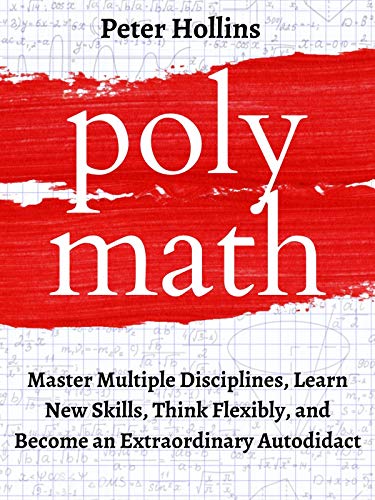Polymath: Master Multiple Disciplines, Learn New Skills, Think Flexibly, and Become an Extraordinary Autodidact Link to heading
Summary Link to heading
“Polymath” by Peter Hollins explores the concept of becoming a modern-day polymath—a person with knowledge and skills across multiple disciplines. The book focuses on the importance of learning how to learn, thinking flexibly, and adapting to diverse fields. Hollins offers strategies for mastering multiple disciplines and developing a versatile skill set, emphasizing that in today’s rapidly changing world, such abilities can set individuals apart both personally and professionally.
Review Link to heading
Peter Hollins delivers a comprehensive guide on embracing polymathic tendencies, drawing from historical examples, case studies, and practical advice. The book is particularly strong in its structure and easy-to-digest format, making it accessible for readers at different levels of familiarity with autodidactic learning. One of the book’s strengths is its actionable strategies, though some readers might find the breadth of topics covered requires more in-depth exploration. Overall, it’s an inspiring read that encourages lifelong learning and intellectual curiosity.
Key Takeaways Link to heading
- Cross-Disciplinary Thinking: Cultivate the ability to integrate knowledge from different fields to innovate and solve problems creatively.
- Learning How to Learn: Focus on understanding your own learning processes to acquire new skills efficiently.
- Flexible Thinking: Adaptability in thought processes can lead to better problem-solving and innovation.
- Time Management: Effective organization and prioritization are crucial for balancing learning across multiple disciplines.
- Deliberate Practice: Engaged and focused practice is essential for skill mastery in any area.
Recommendation Link to heading
“Polymath” is recommended for lifelong learners, students, professionals seeking to diversify their skill set, and anyone interested in self-improvement through autodidactic methods. It’s particularly beneficial for those who admire the Renaissance ideal of the well-rounded individual and are looking to apply such principles in a modern context.
